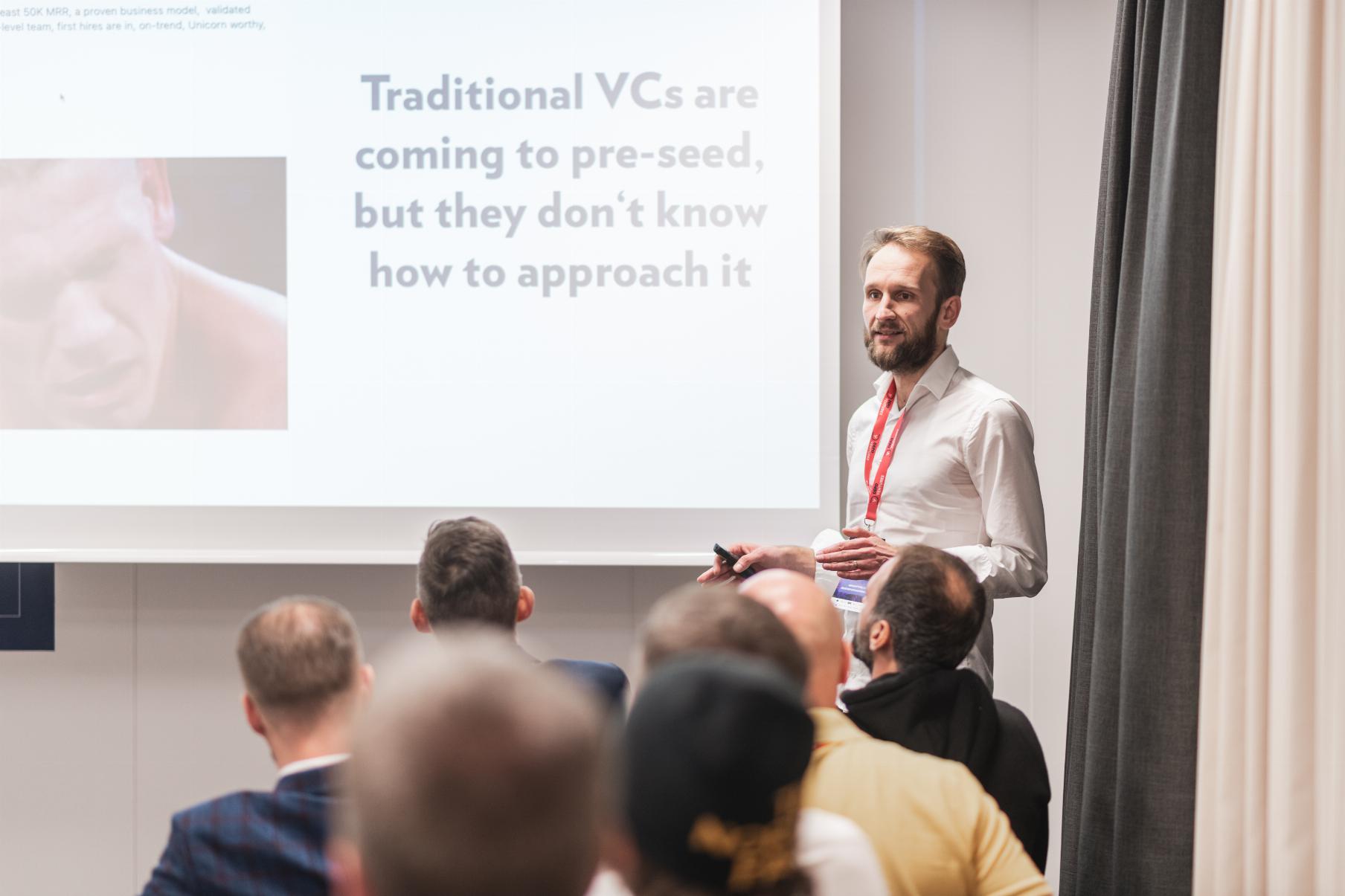Why is it important to have a great pitch deck?
There are several things to mention while considering why making an impactful pitch deck is absolutely crucial. Everyone knows that a good presentation of any kind is just as important as your main points within the argumentation. In this case, you are probably not only selling your concept, but more importantly, you are selling the potential of yourself as well as your team. In the end, there is no right or wrong within the structure, however, because the final decision based on your pitch is reduced to either investment or no investment, a pitch can be effective or not. This either/or situation can be of course quite intimidating because even if the pitch is good, but not great, there is a significant possibility that investors simply will not be interested in an idea that does not seem rock solid. This is then perhaps the most important argument for the necessity of a superb pitch deck.

A pitch deck is basically a very limited look at a complex system of a company or an idea. We must understand that this limitation does not necessarily need to be perceived as a ‘weakness’, but rather a strength. People often lose interest after a couple of minutes or occasionally even seconds of non-engaging content. This is true, especially in the modern age, where our attention span is significantly reduced and investors specifically tend to hear thousands of decks every single year. If the content you’re trying to convey has boring parts, that are non-essential to the overall goal of persuading the audience, it is most likely redundant. The time VCs spend assessing your pitch deck is statistically decreasing, while the average dedicated time in 2021 was three minutes and 32 seconds, this year it went down to two minutes and 42 seconds, showing a decline of 24 percent (DocSend, 2022). After all, the specification of your business plan or detailed data analysis can be included after you ‘hook’ your audience with a clear and concise pitch.
Creating a great pitch is simply essential in order to get external growth capital for your project. Again, if your project is solid, but your pitch deck is on the weaker side, investors will rather choose the ones with the best prospects. Even though a startup pitch is not exactly an architectural contest, where the winner takes it all, you will see a rising tendency in the number of interested parties if your presentation is on point. There is of course a significant difference between five and fifteen interested investors because even though their interest is apparent, it is certainly not binding. Therefore, with a weaker pitch, your number of investors may fall from several interested to zero very quickly.
The investors that are seriously interested, can, of course, become great allies not only from the monetary standpoint but also from their belief in your project. Having an investor be your greatest idealist and supporter of your cause has no contender for a greater feeling. To achieve this, a pitch should be exciting. Excitement for your project is perhaps what you’re trying to create, or in other words, make your excitement for your own ideas as contagious as you can. If your pitch does not show excitement for your project, as well as the things to come, you should be asking the question if you yourself are even that enthusiastic about your ideas. Some VCs have even expressed negatively about the very concept of pitch decks because presentation skills according to them do not reflect abilities to execute an idea correctly. However, pitch decks are still alive and kicking, and they are still an integral part of raising money for your business. It is nevertheless important to understand, that a deck is just a deck, and at the end of the day, what matters the most for investors is if you are able to deliver what was promised.
Stay tuned for more tips for the ideal pitch.



